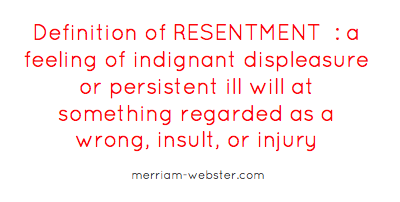
Guest post by Edita Atteck
I believe I know who you are. You are here to be of service to others and you want to create a thriving business. You want to get client referrals, retain existing clients, and you don’t want to live from paycheck to paycheck. You want to have a good reputation and earn client's trust.
I know first hand how starting a business is a challenge. I’ve been there and I fully respect your feelings. I left my corporate career to pursue my passion and committed to turning it into a business helping one person at a time. And I am here today to share with you six steps I believe can help guide you to building a practice that will help you and your business to thrive.
1) Crystal clear profit clarity
Just like any creation, your business starts with a foundation. Be very clear on how your business makes money. Who is your ideal client and how do you stand out from your competition? Review your current revenue model and identify gaps. What is the minimum income you need to make and what is your ideal annual income? Use these numbers to work backwards to figure out the number of hours, clients, sessions you need to have to arrive at the income you want to make. Address gaps creatively.
2) Create a website that attracts clients
Do you have a website that conveys a clear message and exceptional content to your target audience? Have you Googled your name lately? If so, what search results did you get? Think of the words or phrases your ideal client would use in a Google search? Can s/he find you? Be visible in the digital world and that includes social media. Just think of the hundreds of potential clients hanging out on Facebook or Twitter. Allow your website to be a dynamic platform where clients can tap into an expanding knowledge base and valuable resources. Leveraging your online presence is essential to your success.
3) Communication and client list building
How do you communicate and build client lists? Having effective open channels of communication with your existing and prospective clients is a key to creating trusting relationships. You want to be the “go to” person when people are trying to solve their problems. Create a blog where you post valuable tips weekly or a newsletter that offers relevant content. Stay in touch with your client base. Even if some people may never book an appointment with you, they may recommend you to their family and friends because they hear from you regularly.
4) Create excellent products, services, and marketing
Brainstorm on the possibility of creating unique service offerings or value packages. It’s your job to prove to your clients that you are the solution to their problems and not the other way around. And don’t be afraid of marketing. I used to think that certain industries should not use marketing otherwise they may be perceived as "sleazy". I was wrong! Create marketing that is completely honest, ethical, and truthful and your clients will love you for that.
5) Infuse your personality into your brand
Do you incorporate your personality into your practice brand? If not, I suggest you get creative and infuse your unique personality into your brand. While many therapists can offer good therapy, nobody can replicate YOU. Step outside of the box and allow creative thinking to develop an image that is uniquely yours, draws on your strengths, and attracts the clients that you want to work with. And while you may want to be tempted to look for inspiration inside your industry, I challenge you to step outside. The biggest breakthroughs come from getting insights from professionals in other industries.
If you want to learn more about these steps, I highly recommend you enroll in Marie Forleo’s b-school program. I am a proud graduate and an affiliate.
Edita Atteck entered the world of healing, empowering, and motivating people as a result of her passion to make a difference. Edita’s mission is to inspire her clients to overcome stress, deepen their intuition, achieve a quieter mind, heal their lives, and fall in love with their lives. The result of her passion led to founding Journey to Healing, a company dedicated to helping people live more healing, empowered, and joyful life. You can connect with Edita through her website, editaatteck.com, Facebook, or Twitter.
Plant photo (c) Canstock.com


 An interesting theme emerged in my private practice consultation group last week. It may seem like an odd theme for a business group - resentment. As I shared a few of my own experiences in private practice it became very clear that I had used my feelings of resentment as a guide to lead me to my ideal private practice.
An interesting theme emerged in my private practice consultation group last week. It may seem like an odd theme for a business group - resentment. As I shared a few of my own experiences in private practice it became very clear that I had used my feelings of resentment as a guide to lead me to my ideal private practice.



As healers, we genuinely like to do our work. Guiding clients through the therapy process and seeing them make progress is why we do what we do. But if you're in private practice, you know there's a lot going on in the back end and that it's crucial to run an efficient and organized business.